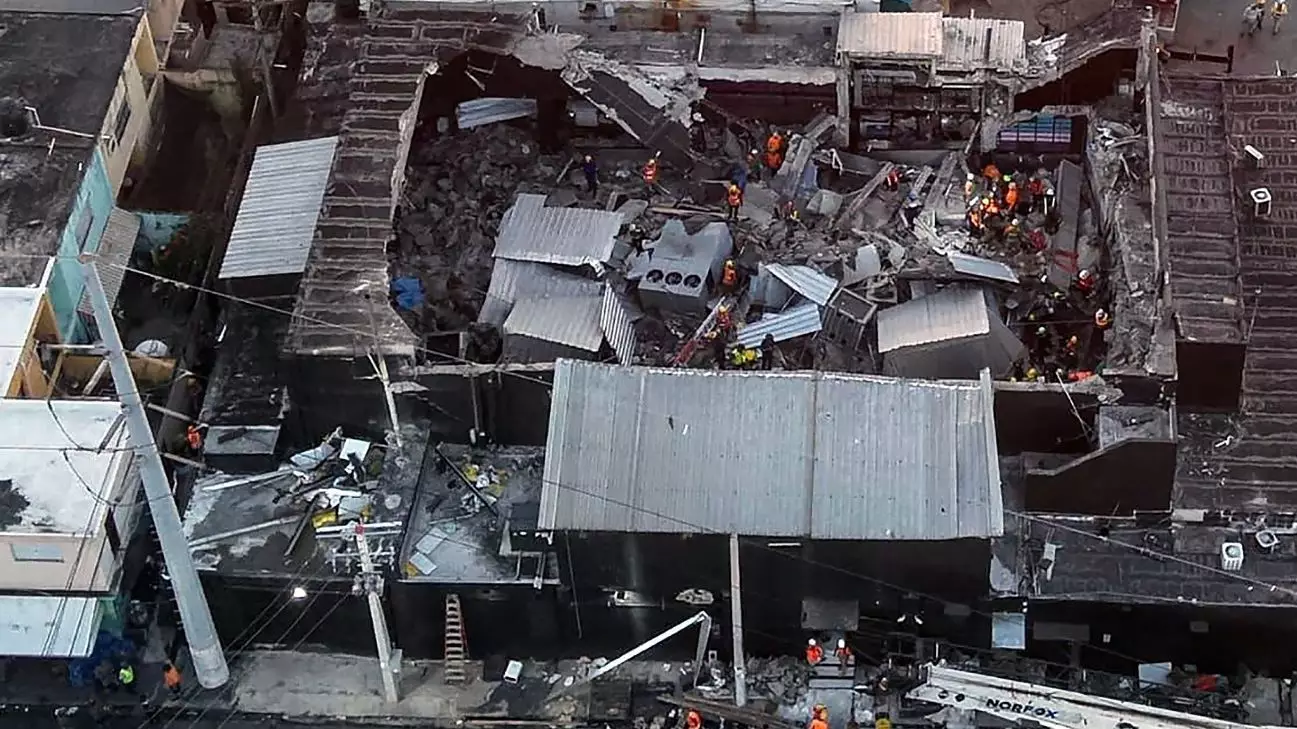In the dead of night, a joyful celebration transformed into a grim spectacle as the roof of Jet Set nightclub in Santo Domingo, Dominican Republic, caved in during a lively merengue concert. This tragic event claimed the lives of over 70 individuals, leaving a mark of sorrow that extends well beyond the immediate victims. Prominent figures, such as former Major League Baseball players Octavio Dotel and Tony Blanco, were among the deceased, raising questions about the safety standards of public venues, especially those hosting mass gatherings. As details of the calamity emerge, one cannot help but grapple with the emotional weight this incident bears on an entire nation rich with cultural significance and community spirit.
The scene was chaotic and heart-wrenching as rescuers sifted through the debris, desperately hoping to find any survivors. The chaos encapsulated the dichotomy of festivity juxtaposed with tragedy—a reminder that joy can be mercilessly interrupted by unexpected disasters. Eyewitness accounts describe a sudden roar—a crack, a collapse—and then panic ensued. It is a tragic irony that a night meant for laughter and dance quickly spiraled into a nightmare, leaving families shattered and communities in mourning.
The Personal Impact: Grief Amidst a National Identity
Among those killed, Nelsy Cruz, the sister of seven-time MLB All-Star Nelson Cruz, adds a deeper layer of personal tragedy. Political figures and athletes mourned alongside her family, revealing the intimate connections woven through the fabric of Dominican culture. The grief felt here is not just individual; it resonates on a national level. In a country where baseball is almost a religion, losing notable figures like Dotel and Blanco leaves an unspeakable void. The Major League Baseball community has expressed its sorrow, with Commissioner Rob Manfred issuing heartfelt condolences that reflect the far-reaching impact of this calamity.
However, this tragedy should also be a wake-up call regarding the infrastructure and safety regulations within entertainment venues—especially in regions where celebrations often draw large crowds. The agony and loss call into question whether adequate safety measures were in place at the Jet Set nightclub or if this was merely a catastrophic oversight waiting to happen. The absence of clarity regarding the cause of the roof’s collapse raises critical concerns about accountability and governance.
A Community United in Mourning and Support
As the Dominican Republic reels from this catastrophe, communities are coming together to support those impacted. The outpouring of sympathy, both locally and internationally, reflects a collective understanding of the devastating effects that such loss has on families and communities. The MLB Players Association has emphasized solidarity with those affected, reiterating the emotional bond between players and fans that transcends borders. In times of despair, coming together is not just an act of compassion; it reinforces a sense of identity and resilience among the Dominican people.
The government, led by President Luis Abinader, attempted to respond swiftly to the crisis. Reports indicate that rescue operations continued well into the following day, with officials committing to recovery efforts as they navigated the rubble. Yet, there lies a critical responsibility to evaluate how preventive measures can be better enforced to ensure the safety of all attendees in cultural and entertainment spaces. The emotional scars of this tragedy will not easily fade, but they may ignite a movement demanding better oversight and rigorous construction practices.
Evaluating Safety in Public Spaces
This devastating collapse serves as a glaring reminder of the responsibilities held by those in power to ensure public safety. Mass gatherings, while celebratory, must be meticulously evaluated for risks related to structural integrity and emergency preparedness. The Dominican Republic, with its vibrant festival culture, must remain vigilant in enforcing architecture standards, holding venues accountable for suitable safety measures. It becomes evident that exploring this path is not merely an administrative task; it is an ethical obligation towards every citizen who seeks joy and connection in shared spaces.
As we grieve for the lives lost, we must also examine our collective responsibility to advocate for structural improvements that could prevent such tragedies in the future. There lies a moment of reflection for all: in celebrating life, we must also champion safety, accountability, and the will to protect one another within our joyful gatherings.


Leave a Reply